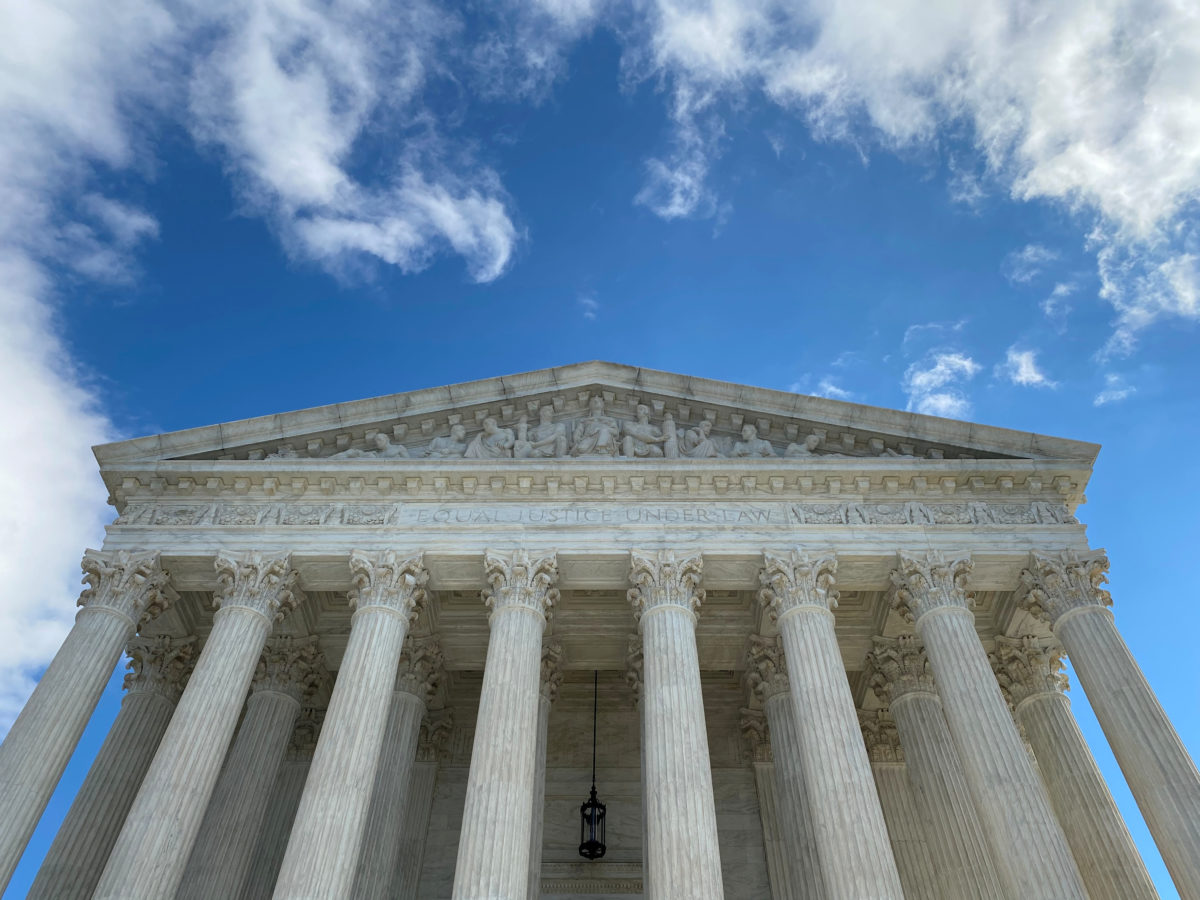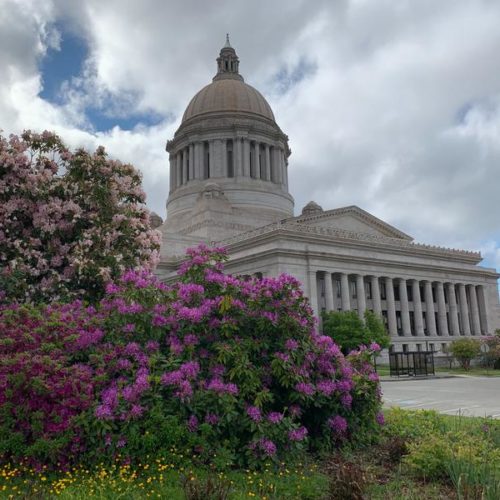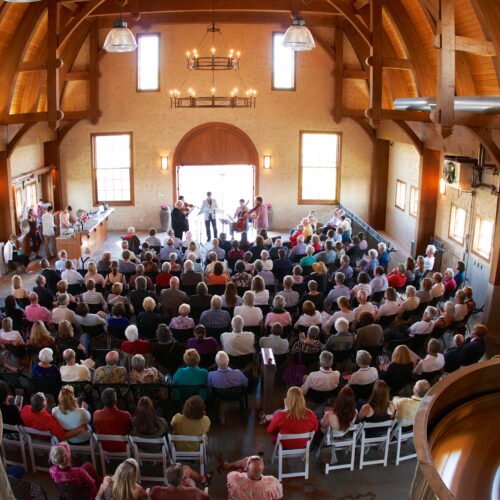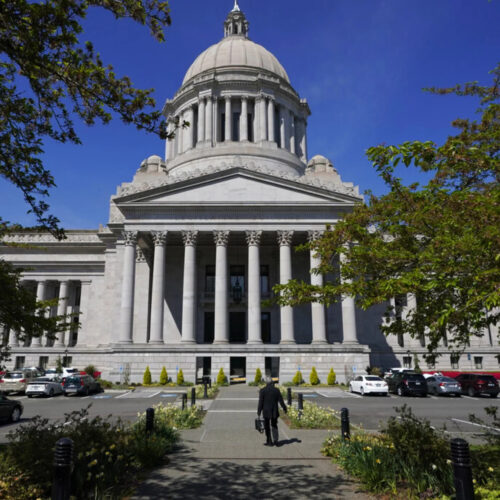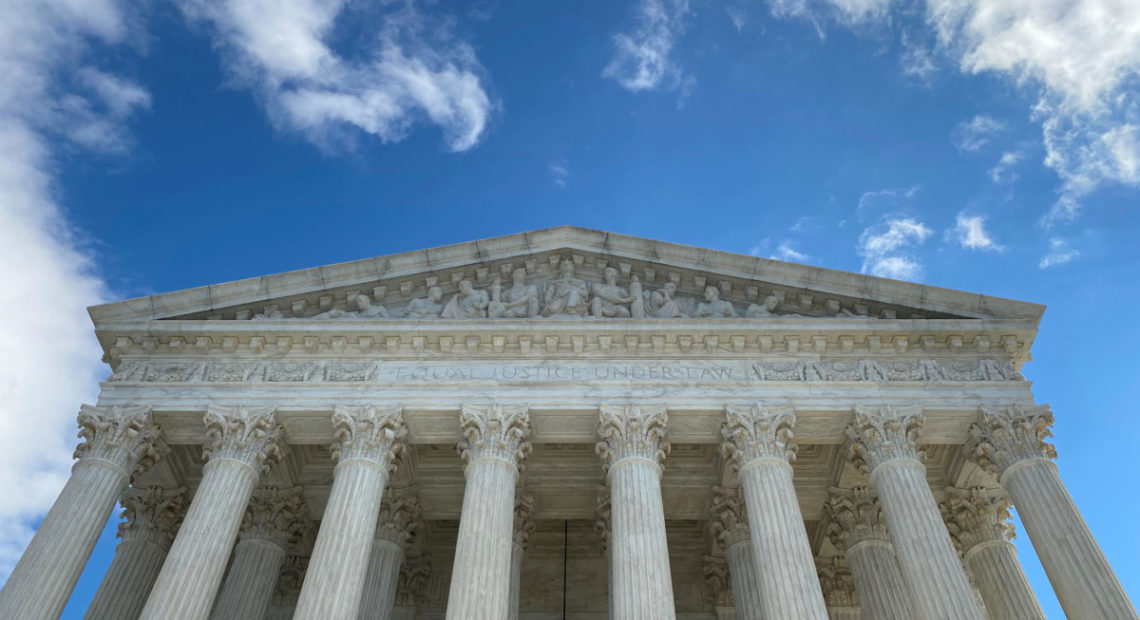
Trump’s Taxes, Birth Control, ‘Faithless Electors’ Headline Supreme Court’s Historic Phone Arguments
READ ON
BY MARCIA COYLE / PBS NewsHour
During historic telephonic arguments this week and next, the U.S. Supreme Court will take up major challenges involving access to President Donald Trump’s financial records, birth control health insurance, “faithless electors” in presidential elections and the constitutionality of the federal ban on robocalls, among others.
The justices will hear arguments in 10 cases over the two-week period. In response to the coronavirus pandemic, the court and the lawyers in those cases will appear remotely. The nation may tune into those arguments because the justices– in another break with tradition– are providing a live audio feed to certain media outlets, who, in turn, will make the audio more widely available.
LISTEN LIVE: Supreme Court hears arguments by phone
All 10 cases have fascinating legal or social aspects to them, but five in particular have significant legal or practical implications and are likely to garner headlines for the arguments and the justices’ final decisions in them.
Week 1: Birth Control and RoboCalls
On Wednesday, May 6, the justices will hear arguments on two very different issues.
Affordable Care Act and birth control
First on the agenda at 10 a.m. are two cases that have been merged for arguments: Little Sisters of the Poor v. Pennsylvania and Trump v. Pennsylvania.
Pennsylvania and New Jersey successfully challenged in the lower courts the Trump administration’s categorical exemption of both for-profit and nonprofit employers with religious or moral objections to providing female employees with contraceptive insurance coverage from the requirement under the Affordable Care Act and its implementing rules. The expansion of the religious exemption and the addition of the “moral objection” were new features of the rules.
The federal agencies involved in implementing the Affordable Care Act estimated that between 70,000 and 126,000 women would lose contraception coverage in one year under these rules. A federal district court, later affirmed by an appellate court, blocked the new rules by a nationwide injunction against their enforcement.
In the Supreme Court case, the Trump administration argues that the lower courts were wrong to find that the administration violated the federal Administrative Procedure Act by not publishing notice and an opportunity for public comment before the contraception rules were final. It also claims that the Affordable Care Act’s text and the federal Religious Freedom Restoration Act require or authorize the expanded exemptions.
The ACA’s birth control coverage, part of a comprehensive package of preventive care and screenings for women, has been under legal attack almost from the beginning, mainly by religious organizations and anti-abortion groups. Wednesday’s cases will mark the third time that the justices have faced a related challenge.
The First Amendment and cell phones
When the justices finish hearing the birth control cases, they take up a First Amendment case with huge practical consequences for cell phone owners. The Telephone Consumer Protection Act of 1991 prohibits automated calls to cell phones– except in emergencies– without the called party’s consent. In 2015, Congress amended the law to add another exception to the ban: calls made solely to collect a debt owed to the government.
The “government debt-exception” triggered the First Amendment challenge by some political organizations and consultants who successfully argued that the robocall ban, as amended by the exception, was an unconstitutional content-based restriction on speech. As they claimed, the amended law allowed speech that “discusses only the collection of government-backed debt” but prohibited speech on any other topic. They contended the only remedy was to strike down the entire law. The lower appellate court ruled the government debt exception was a content-based restriction on speech, but the remedy was to sever the exception from the law.
In the case, Barr v. American Association of Political Consultants, the Trump administration argues that the debt exception does not regulate speech, only a type of economic activity. But if the justices disagree, the administration contends, the 1991 law has a provision that requires the severing of any provisions found to be unconstitutional or illegal, leaving the rest of the law intact.
Week 2: Trump’s taxes and “faithless electors”
The hard-fought battles between Trump and U.S. House investigating committees and a state grand jury for access to the president’s taxes and other personal financial records come to a head in the Supreme Court on Tuesday, May 12.
Trump and banks
In Trump v. Mazars, joined with Trump v. Deutsche Bank, the president’s private lawyers argue that three House investigating committees did not have constitutional or statutory authority to issue subpoenas to Mazars (Trump’s accounting firm) and two of the president’s banks (Deutsche and Capital One). His lawyers argue that the subpoenas lacked explicit authorization by the House, as required by its rules, and they lacked a “legitimate legislative purpose,” as required by Supreme Court precedents.
The committees counter that they have multiple legislative purposes and they name them in their court briefs. They also point to House-passed resolutions that, they claim, authorize the subpoenas. And, because the subpoenas were issued to third parties (banks and an accounting firm), they will not interfere in any way with Trump’s ability to perform his duties as president.
The three appellate courts to consider the subpoena challenges have rejected Trump’s arguments.
Trump’s taxes
After the bank subpoena case, the justices will turn to Trump v. Vance. In this case, the president seeks to block a grand jury subpoena to Mazars for Trump’s tax records as part of a criminal investigation into the Trump Organization’s activities.
The president argues that he is absolutely immune from any criminal process while he is in office. The Manhattan district attorney’s office, which is conducting the investigation, counters there is no absolute immunity from a subpoena for documents unrelated to Trump’s official duties and because the subpoena is directed to Mazars, there is little risk of interference with those duties.
The Supreme Court has never ruled on whether a sitting president is immune from any criminal process or immune from criminal prosecution, although the Department of Justice takes the latter position. It has ruled, in a case involving former President Bill Clinton, that a sitting president is not immune from civil suits for actions done before taking office.
This case and the bank subpoena cases, while raising different constitutional issues, have potentially profound implications for the Constitution’s separation of powers and the authority and roles of not just the executive and legislative branches, but of the Supreme Court itself.
“Faithless” electors
On the final day of the telephonic arguments, May 13, Colorado and the state of Washington will defend their laws requiring presidential electors to vote in the Electoral College for the state’s popular vote winner in the cases Chiafalo v. Washington and Colorado Dept. of State v. Baca. In Washington, “faithless” electors are subject to a $1,000 fine; in Colorado, they can be removed. In 2016, three electors in each of those states failed to cast their votes for their state’s popular vote winner.
In the Supreme Court, both states rely on what they argue is the broad grant of authority in Article II to “appoint, in such Manner as the Legislature thereof may direct, a Number of Electors, equal to the whole Number of Senators and Representatives to which the State may be entitled in the Congress.” That “plenary” power, they argue, includes the power to fine and to remove.
The electors counter that while states have the power to appoint a slate of electors, their power ends with the appointment. Electors’ votes are a federal function, they contend, and they derive their authority from the federal Constitution, not from the state.
Forty-eight states, including Colorado and Washington, award electoral votes to the winner of the popular statewide vote. Expect to hear a lot about the historical practice and the thoughts of the Framers about the electoral college. Although the electoral college votes of faithless electors have never changed the outcome of a presidential election, the possibility exists.
All of the cases on May 4, 5, 6, 11, 12 and 13, are worth listening to if you have the time and the interest. The justices’ decisions may have significant implications for the powers of the presidency and the Congress, the manner in which the nation elects its president, female workers’ access to contraceptive care, our privacy in our cell phone usage and more. Some of the most prominent Supreme Court lawyers in the country will make the arguments. The justices also will post the transcripts and audio on their website each day after the arguments.
Copyright 2020 PBS NewsHour. To see more, visit pbs.org/newshour
Related Stories:
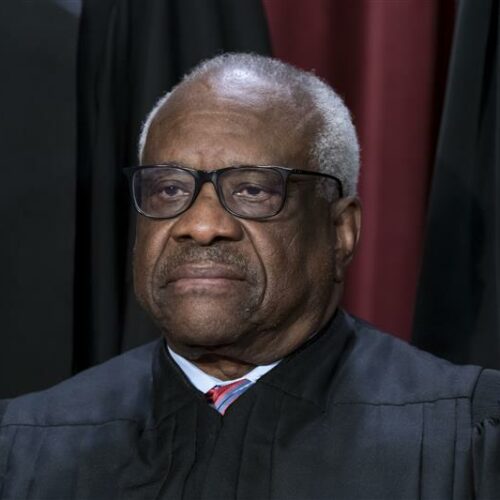
US Supreme Court will consider petition for stay in COVID-19 free speech case
The U.S. Supreme Court will review an application for a stay in a federal lawsuit involving local retired eye doctor Richard Eggleston.
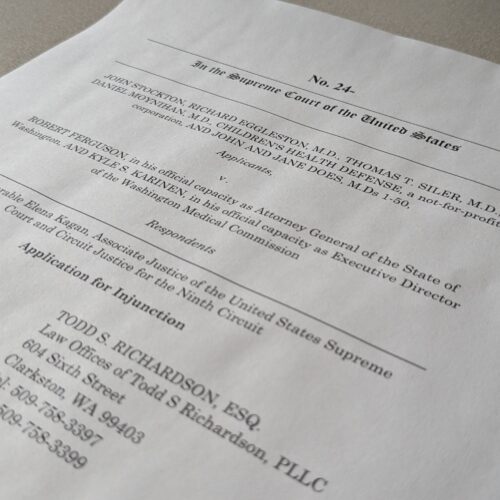
Group representing retired Clarkston ophthalmologist asks US Supreme Court for injunctive relief
A retired Clarkston eye doctor is part of a group asking the U-S Supreme Court to grant an injunction in a lawsuit against Washington state officials.
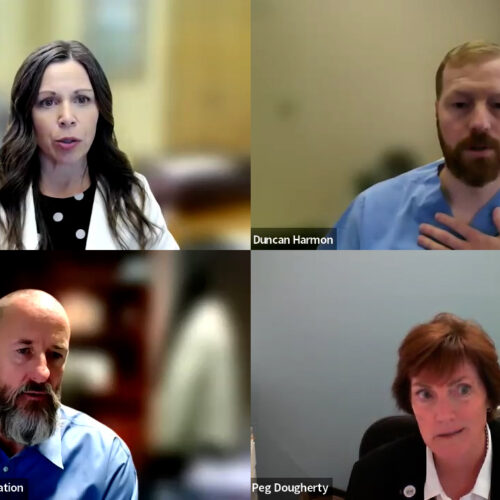
Idaho doctors say emergency abortion protections are welcome, but not enough
Screenshots of panelists during a press conference on Thursday. Clockwise from top left: Susie Pouliot Keller, chief executive officer of the Idaho Medical Association; Dr. Duncan Harmon, a maternal fetal

